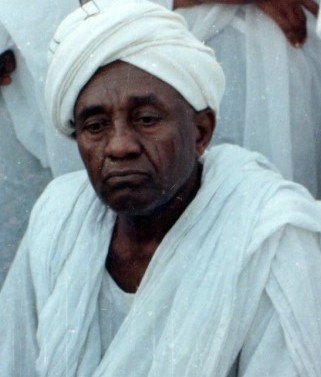
Mahmoud Taha (photograph inconnu)
Mahmoud Mohammed Taha was a Sudanese spiritual thinker, engineer, and political chief who devoted his life to an revolutionary reinterpretation of Islam, advocating for a contemporary, progressive imaginative and prescient for Sudan and the broader Muslim world. Recognized to his followers as “Ustadh” (the Trainer), Taha’s radical concepts on human rights, democracy, and gender equality in the end led to his execution for apostasy, cementing his place as a controversial but profoundly influential determine in up to date Islamic thought.
Born in 1909 in Rufaa, a city on the Blue Nile south of Khartoum, Taha acquired a Western-style schooling, graduating as a civil engineer from Gordon Memorial School (now the College of Khartoum). After a quick stint with Sudan Railways, he started his personal engineering enterprise. His political activism started early; in 1945, he based the Republican Get together, an anti-monarchical, federalist, and socialist group that challenged British colonial rule. His defiance led to a number of imprisonments by the British authorities, together with a two-year sentence throughout which he launched into a interval of intense religious seclusion, prayer, and meditation.
This era of self-imposed retreat, referred to as khalwa, was transformative for Taha. Rising from it, he articulated what he referred to as the “Second Message of Islam.” This groundbreaking philosophy distinguished between the Qur’anic verses revealed in Mecca and people revealed later in Medina. Taha argued that the Meccan verses, revealed through the Prophet Muhammad’s early, persecuted part, represented the common and everlasting ideas of Islam, comparable to equality, human dignity, and freedom of perception. The Medinan verses, revealed after the institution of an Islamic state, contained subsidiary legal guidelines and rules suited to the particular social and political situations of Seventh-century Arabia. This “Second Message” championed democratic governance, financial justice, and full equality between women and men, and between Muslims and non-Muslims.
To propagate his concepts, Taha reworked his political celebration into the Republican Brotherhood (and Republican Sisters), a social-religious motion that practiced and promoted his imaginative and prescient. His followers have been recognized for his or her activism, significantly in advocating ladies’s rights and difficult conventional social norms. The Republican Sisters performed an important function in campaigning for gender equality, typically collaborating in public discussions and debates, which was revolutionary for the time
Taha’s progressive interpretations positioned him at odds with the conservative spiritual institution and Sudanese governments. He fiercely opposed the imposition of Sharia legislation by the regime of Jaafar Nimeiri in 1983, viewing it as a distortion of true Islamic ideas and a transfer that might additional divide Sudan. He famously distributed pamphlets calling for an finish to those Sharia legal guidelines. His defiance led to his arrest on January 5, 1985. Tried on prices of apostasy, Taha refused to acknowledge the legitimacy of the courtroom, sustaining that the Sharia legal guidelines beneath which he was being judged have been themselves illegitimate. Regardless of worldwide appeals for clemency, Mahmoud Mohammed Taha was publicly executed by hanging in Khartoum on January 18, 1985, on the age of 76. His loss of life sparked protests and cemented his standing as a martyr for freedom of thought and progressive Islamic reform.